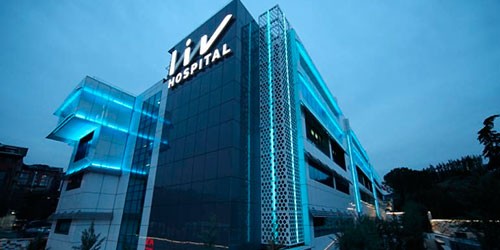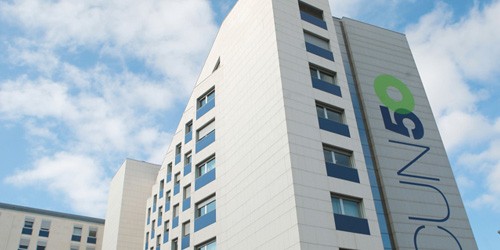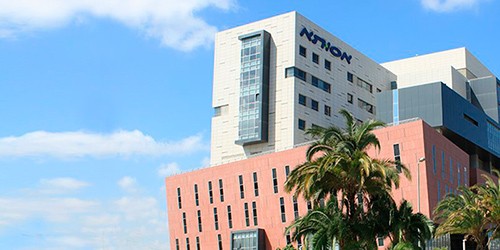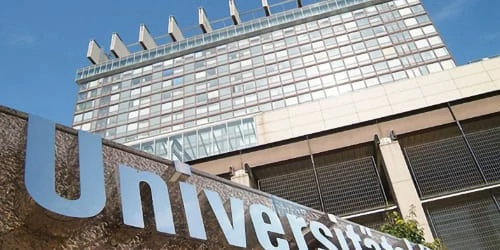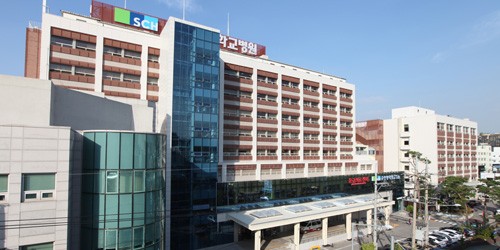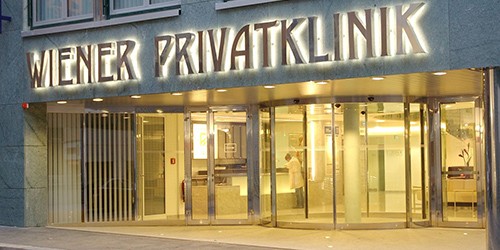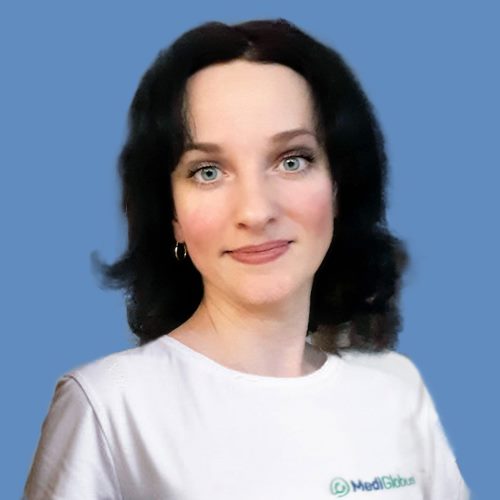Every year, millions of people are faced with a diagnosis of cancer. It remains one of the greatest challenges of our time. According to World Cancer Research Fund International, in 2020, there were more than 18 million cases of cancer worldwide. However, with early diagnosis, there is hope to save and defeat this disease. In this article, we will explain how cancer can be prevented and how to increase the chances of recovery. We will look at the stories of patients whose lives have been saved through an early diagnosis. Through their real-life examples, you can learn the importance of regular check-ups, which can make a decisive difference in the outcome of the cancer treatment.
Listen to the article:
How does early diagnosis affect cancer prognosis?
Regular check-ups/screenings increase the chances of detecting cancer in its earliest stages. It makes the disease much easier to treat, and sometimes even prevents it from developing.
In addition, according to research, some malignant tumours can go undetected for 10 years or more because they develop slowly and without symptoms. However, thanks to cancer screening, it is possible to detect these emerging neoplasms at the very beginning of their development and start therapy in time.
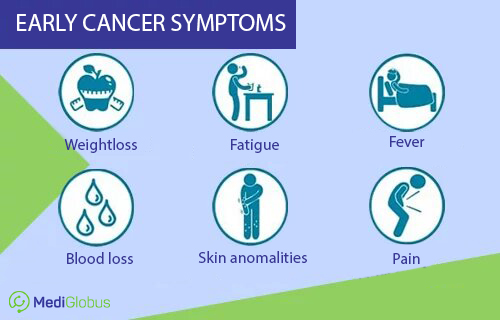
How an early diagnosis improves survival prognosis (according to Cancer Research UK):
| Comparison criteria | At stage 1 | At the final stage |
|---|---|---|
| Breast cancer | almost 100% | 3 out of 10 patients |
| Colorectal cancer | 9 out of 10 patients | 1 out of 10 patients |
| Lung cancer | 6 out of 10 patients | 1 out of 10 patients |
What is a cancer checkup?
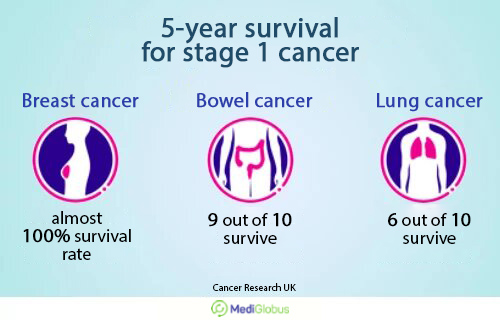
A cancer check-up is a comprehensive medical examination that aims to detect cancer or precancerous changes in the body when treatment can be most effective.
It includes various procedures and examinations: medical interview, physical examination, laboratory tests of blood and urine, imaging tests such as mammography, colonoscopy, CT scan, and biopsy or cytological examination. The amount and type of examinations in a cancer check-up may vary depending on the patient’s age, gender, hereditary predisposition and other risk factors.
Who is recommended to have regular cancer screening?
If you notice any changes in your health, such as coughing up blood, blood in your faeces or urine, a lump in your breast, testicles, under your arm or anywhere it hasn’t been before, unexplained weight loss, pain in your head, neck, chest, abdomen or pelvis.
If you have a close relative diagnosed with cancer.
If you have a genetic predisposition to cancer. Some genetic abnormalities increase your risk of developing cancer. For example, BRCA1 and BRCA2 gene mutations cause breast and ovarian cancer.
The risk of developing cancer increases with age. For example, for women aged 50 and older, regular breast and cervical screenings are recommended. For men over 50, prostate and colorectal cancer screening is important.
Smoking, being overweight, poor diet and lack of physical activity increase the risk of developing cancer. If you have these risk factors, regular screening is recommended.
Don’t waste any time, make an appointment for a cancer screening today. Contact MediGlobus for a free consultation. We’ll recommend a good clinic, make an appointment and help you organise your travel.
Amy’s story: genetic predisposition to breast cancer
At the age of 31, Amy learnt of her increased risk of developing breast cancer. She was diagnosed with a BRCA2 gene mutation. For several years, she underwent regular cancer check-ups to monitor her health. However, at each checkup, she was afraid to find out that the tumour had already appeared. So Amy decided to have a bilateral mastectomy (surgery to remove both breasts). “I had to do everything I could to stay healthy for the sake of my children,” she recalls. As a result, the surgery helped her prevent future cancer. Amy plans to discuss genetic testing with her children, as they also have an increased risk due to the same predisposition. Amy still undergoes regular cancer screenings to monitor the condition of her ovaries.
Amy’s story and experience emphasise the importance of regular screening. By detecting the problem early and taking preventative measures, she was able to win her battle with breast cancer and maintain her health and quality of life.
(Story from CDC’s Division of Cancer Prevention and Control)
Jenn’s Story: How she beat lung cancer and ran a marathon one year after her diagnosis
Jennifer, dean of the Depaul University School of Law, ran a half marathon just four months after having a lobectomy and a full marathon one year after surgery. How did she do it?
Jenny found out she had lung cancer after undergoing an MRI scan. She had no symptoms, didn’t smoke and had no family history of the disease, so the diagnosis came as a real shock. Doctors performed a lobectomy which resulted in the removal of the lower right lobe of her lung. Fortunately, the cancer was diagnosed at stage 1 and had not spread to other organs, so she did not need to undergo additional treatments (radiation therapy or chemotherapy).
Before her illness, Jenn was a keen long-distance runner. After her surgery, she set out to find people who were able to continue running after lung cancer treatment. She learnt about the LCRF team, which supports important research into cancer treatment and sponsors a team for the New York City Marathon. Jenny soon became a member of the team, and it became the best medicine for her! “It’s important to me to be part of this team. I want people with lung cancer to see other survivors who can keep running and stay active.” Thanks to the fact that the cancer was detected at Stage 1, there were no serious health consequences and doctors allowed her to continue doing sports. A year after her surgery, she decided to run a full marathon. It was a way to prove to herself and others that people with such a terrible diagnosis can also do amazing things and be strong.
Jenny is happy to have been able to convey to some people that regular check-ups can effectively combat even the most dreadful of illnesses and continue to live a full life after treatment. “Don’t ignore symptoms that seem strange, get regular check-ups and follow all doctor’s recommendations. It’s always better to know what’s going on in the body so you can take control of your treatment.” – Jenny advises.
(Story from Lung Cancer Research Foundation)
Devin Dillon’s story – how early detection saved her life
Devin Dillon is a perfect example of why colorectal cancer screening is recommended to start as early as possible. In 2022, at the age of 48, she underwent her first colonoscopy. “I have no family predisposition to cancer,” she said. “I’m not overweight, I don’t smoke, I don’t drink alcohol, I lead a healthy lifestyle, so I was sure this problem would never affect me.” However, during the examination, the doctor found 10 small benign polyps, which were immediately removed. One large mass was also found, which was removed two weeks later. The biopsy results showed the presence of cancer. “Finding out I had cancer was shocking,” the woman recalls. Devin then underwent a laparoscopic partial colectomy to remove 30cm of the colon as well as lymph nodes. Two weeks after surgery, the woman learned that she was completely free of the disease and no further treatment was required. “Hearing this news was a great relief,” Devin said.
“I am happy that I took the time to get screened and was able to prevent dire consequences. The disease could have progressed and spread to other organs.” The doctor recommended having her next colonoscopy a year after the surgery. If all goes well, the examination should then be every 5 years thereafter. The doctor claims that if all follow-up recommendations are followed, there is a very low chance of recurrence.
(Story from UCLA Health)
Advantage of a check-up abroad
By going to a foreign clinic for oncological screening, patients get access to modern medical equipment, experienced doctors and a high level of service that meets international standards. The percentage of misdiagnoses in developed countries is virtually zero.
The promptness of check-ups abroad is another advantage. Instead of long waiting times, the process is organised in such a way that the patient can undergo all necessary examinations in 1-2 days. Thanks to modern diagnostic capabilities and laboratory tests, diagnostic results are provided in the shortest possible time, which allows for immediate treatment or appropriate measures to maintain health.
Which clinic to go to for cancer screening?
How much does a check-up cost abroad?
The cost of a comprehensive cancer diagnosis depends on the country and the specific clinic. For example, while the level of medical care is quite high, prices in Turkey and South Korea are 20-40% lower than in the USA, Israel or Germany.
The price also depends on the type and number of examinations that are included in the check-up complex, doctor’s consultation, and type of laboratory examinations and tests.
| Country | Cost |
|---|---|
| Turkey | from $1,200-2,780 |
| South Korea | from $1,400-2,900 |
| Israel | from $2,000-3,800 |
| Spain | from €1,800-3,400 |
| Germany | from €1,500-3,500 |
Summary
Early diagnosis of cancer plays a crucial role in improving the chances of successful treatment. It allows therapy to be started early, when the cancer has not yet spread, which improves the prognosis of the disease.
If cancer is detected at stage 1, the 5-year survival rate for breast cancer patients is almost 100%, 9 out of 10 colorectal cancer patients survive, and 6 out of 10 patients with lung cancer survive. ом толстой кишки выживают 9 из 10 пациентов, с раком легких – 6 из 10.
An oncological check-up or screening is a comprehensive examination aimed at the early detection of cancer and assessment of a person’s general health. Various methods are used for diagnosis: laboratory tests, MRI, CT, ultrasound, etc.
Oncological screening is recommended for all people, especially those with a family predisposition, high genetic risk, and age older than 45-50 years.
The advantages of check-up diagnostics abroad are the use of modern equipment, experienced specialists, a high level of service and compliance with international standards. In addition, check-ups can be completed in a matter of days, and the results of the examination can be obtained as soon as possible.
The cost of diagnostics abroad depends on the country and the chosen check-up package. For example, the average cost of an examination in Turkey and South Korea ranges from $1,200-2,900, and in Israel, Spain and Germany from €1,500-4,000.
CHECK-UP APPOINTMENT
Don’t wait for symptoms, get regular comprehensive cancer screenings to prevent disease progression. Take care of your health today to protect your future. To make an appointment for a check-up, click the button below and wait for a MediGlobus coordinator to call you.
Stories of patients whose early cancer detection saved their lives
Make an appointment for a checkup
Sources:
- 1. World Cancer Research Fund International
- 2. Cancer Research UK
- 3. How Long Can You Have Cancer Without Knowing About It
- 4. CDC’s Division of Cancer Prevention and Control
- 5. Lung Cancer Research Foundation
- 6. Colorectal Cancer Screening – Our Stories




